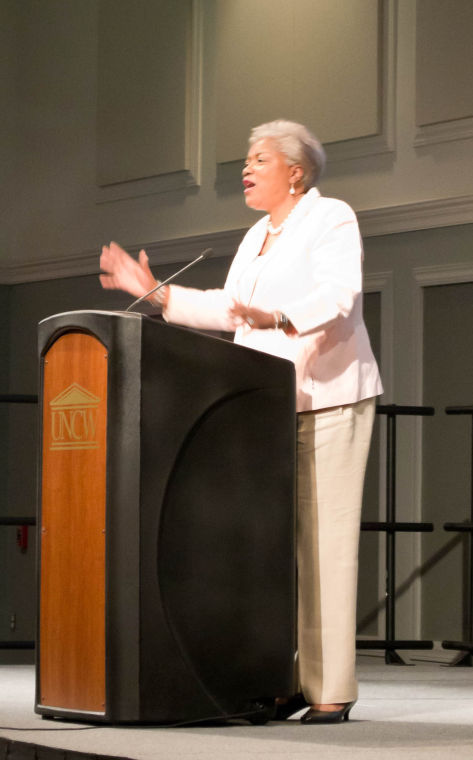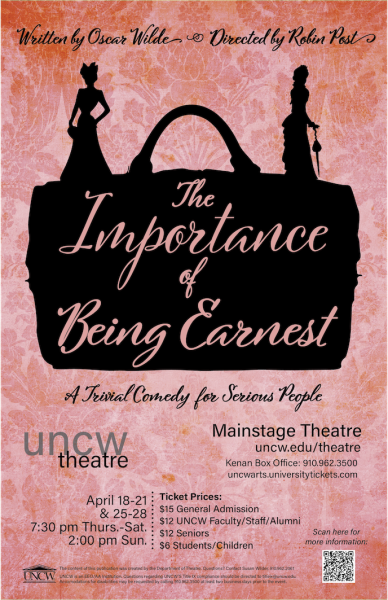Donna Brazile shares views on women and politics
Donna Brazile, a world-famous political analyst, speaks in front of a crowd about her experiences in politics as an African-American woman and how other woman can overcome the barriers she has had to face.
October 13, 2013
World-renowned political analyst Donna Brazile shared her experiences as an African-American woman in politics with Wilmington natives and UNC Wilmington faculty and students on Monday, September 30. The focus of Brazile’s lecture was to uplift women and present the impact they can have on politics today.
Brazile first became interested in the political world at age nine when a city council candidate in her Louisiana neighborhood promised a new playground. Eager to aid in the effort, Brazile went door-to-door campaigning. With her help, the candidate won, and the playground was built.
Brazile has come a long way since her playground days. She has worked on every presidential campaign since 1976, and was the first African-American to lead a presidential campaign when she worked for Al Gore’s in 2000.
These experiences provided Brazile had a wealth of experience to speak from spoke from when she addressed the UNCW audience about females’ place in the political world.
“The war on women is real, sometimes overt, insidious, obvious, sometimes covert, subtle. And that attitude needs more serious adjusting,” Brazile said.
Brazile used statistics specific to North Carolina and the United States to acknowledge the disparity of American female representation in government.
Two years ago, North Carolina ranked among the top 15 states for number of women legislators in Congress. Since then, the state has dropped to 31st, with only 40 women serving on the legislature in 2012. Despite comprising 51 percent of the population, women only make up 17 percent of Congress.
“Women are not there yet. Women are not pushing up on the elevator, because they’re stuck on the lobby,” Brazile said.
Regardless of gender barriers, women in the United States have established themselves as equal or superior to men in many ways. Women represented 51 percent of doctoral degree holders, 67 percent of college graduates and 70 percent of valedictorians in the United States in 2012. Currently, women own 40 percent of businesses across the nation, and 8.3 million corporations are run by women. And from 1970 to 2009, women went from holding 37 percent of all U.S. jobs to 48 percent.
Brazile also mentioned first lady Abigail Adams and Texas Sen. Wendy Davis as examples of female leaders.
“Wendy Davis stood for twelve hours without a bathroom break, with a back brace, filibustering a bill in the Texas legislature that would have predetermined a women’s reproductive health system,” Brazile said. “I hear that Wendy Davis is running for governor of Texas. It’s about time we had another strong woman running that state.”
The bill Brazile referenced would have restricted access to medical abortions in Texas. Yet, Davis’ resilience was able to change the policy for an entire state.
During the question and answer portion of Brazile’s lecture, an audience member asked her where she sees herself in 10-15 years.
“I am not content. I would like to see a woman in the White House, and that is my goal,” Brazile said.
With the assistance of strong women like Brazile, that goal could soon become a reality.
Donna Brazile has been a keynote lecturer at more than 125 higher-education institutions throughout the country. She is an on-air contributor to CNN and a regular on ABC’s “This Week.” The Upperman African American Center, the Women’s Studies and Resource Center, and the Mimi Cunningham Speaker Series Endowment of the Department of Communication Studies sponsored her visit to UNCW.






















